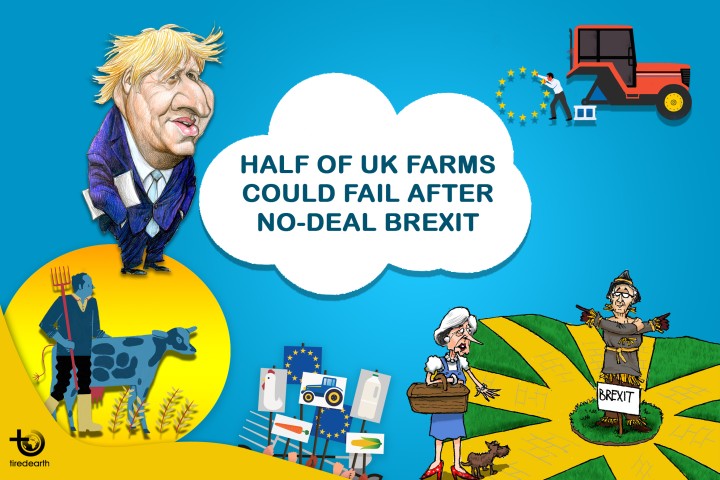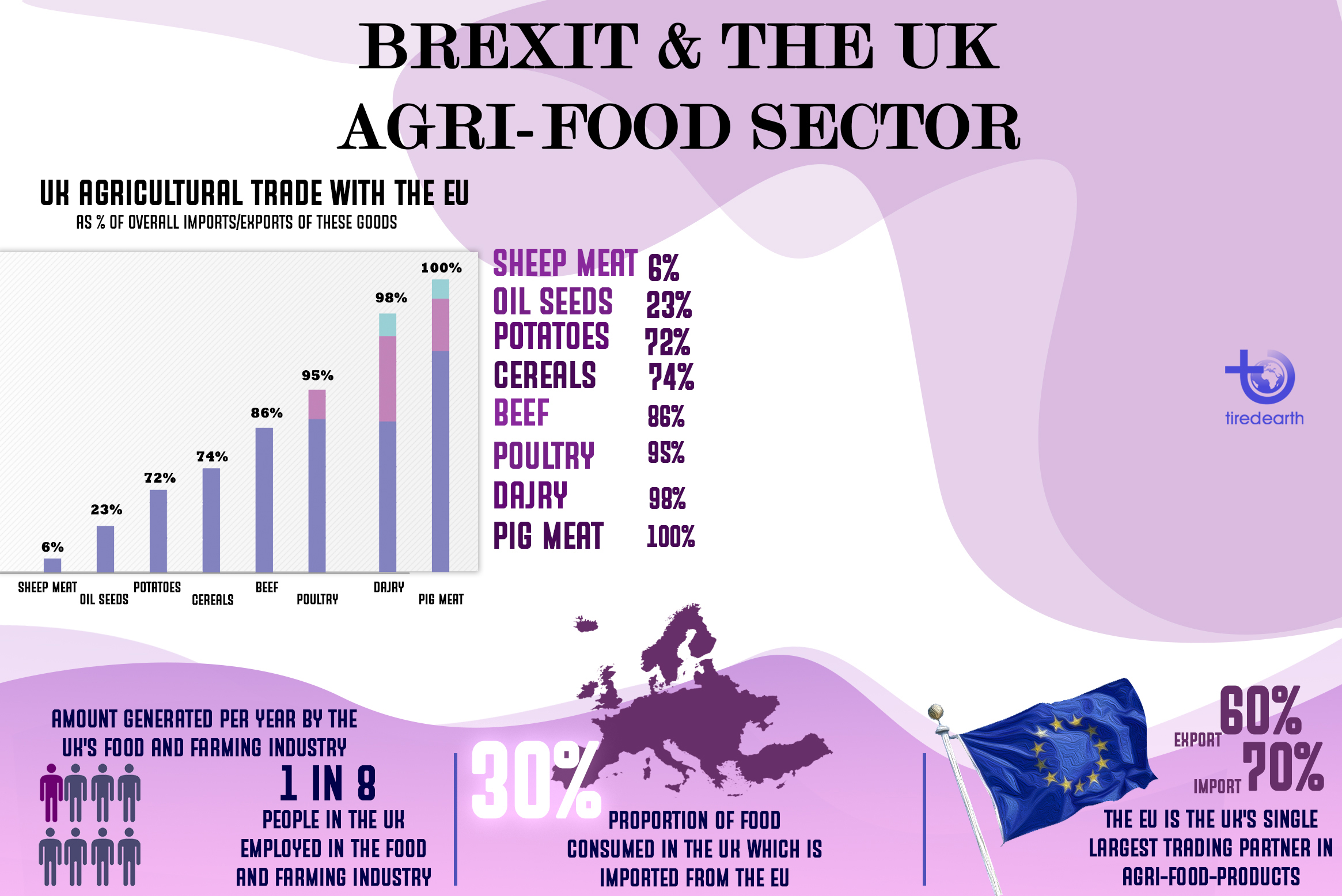Challenges for food standards
Another problem of no-deal Brexit is how to protecting existing standards and trade deals that would face calamity for British food and farming. Even before Brexit, we face huge challenges in farming that current policies are failing to address.
If there will be a no deal Brexit, there is a huge risk that the UK will be forced to import more food from countries with lower production standards, or countries which are exposed to significant environmental risks like water stress. For instance, counting on imports from countries like India or many African countries, which experiences 9 months of water scarcity each year, would expose UK food supply chains to important interruption. UK’s government has already offered using trade policy to lower food prices and this means lower standards and reduced checks on imports due to improve access to cheaper produce. Ted McKinney, a US trade official, has called for the withdrawal of current UK food standards to enhance US-UK trade.
Domestic farmers would need to discover new ways to stay competitive in the face of competition from other countries’ producers who are not limited by severe environmental regulations. Existing regulatory standards could become worsen, as farmers look for instant cost saving opportunities. Many farmers would face strict economic pressure and would be more reluctant to make long term investments to transition to more sustainable farming practices.
There are other risks for UK’s public includes low prices and high costs for farmers, the dangerous over-use of antibiotics and the devastating impact of bovine TB – to the creeping, monster tasks of meeting the UK’s commitment to an 80% cut in greenhouse gas emissions by 2050 and reversing a long-term decline in wildlife. If trading with the US does water down UK food standards, farming practices may follow.
UK farmers would need to produce cheaper food to compete with other countries’ industrial farming systems like the US. The UK might be forced to increase intensification and industrialisation of farming to do this. Not only would hormone-treated beef, chlorine-washed chicken, and pesticide-doused foods, be sold in UK’s supermarkets, but these common US practices could become part of UK product too. Therefore, these practices would uphold the environmentally-destructive industrialisation of farming, and causes health risks to the public.
Rules on genetically modified crops (GM crops) could also be mitigated and this increases the risk of both health and environmental problems. This could generate a growth in the use of herbicides linked to environment damage and health impacts, disruption of local ecosystems from cross pollination with GM crops, and farmers getting stuck into unfair agreements with multinational corporations.
Brexit also poses an insecure and unfair situation for UK food production especially for farm workers. As EU farm workers leave the UK, we have to strive a lot to fill these low-paid and insecure jobs. Our fruit and vegetable production is largely dependent on migrant workers. So except the labour crisis, we will grow less and import more, and healthy eating may become less affordable.



